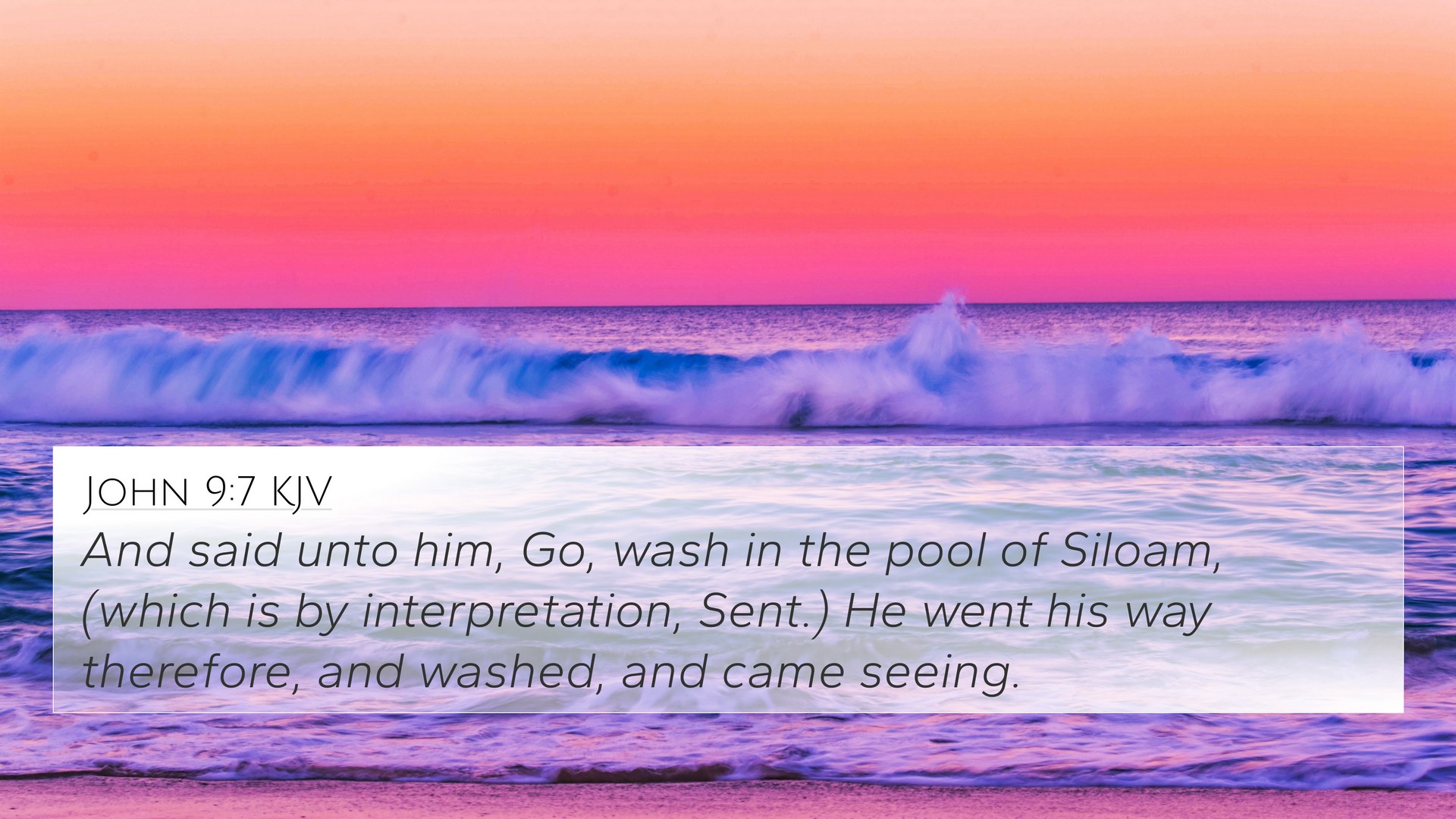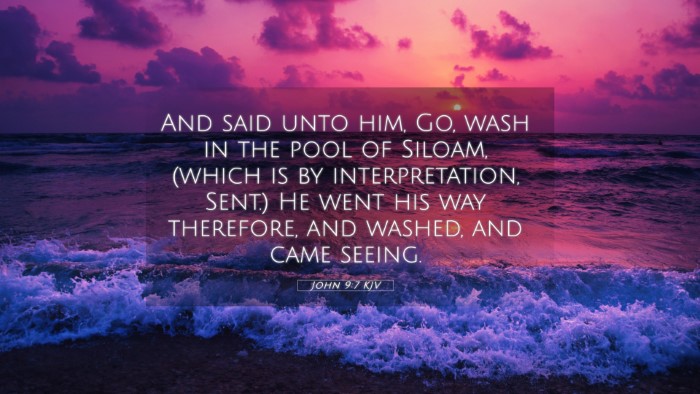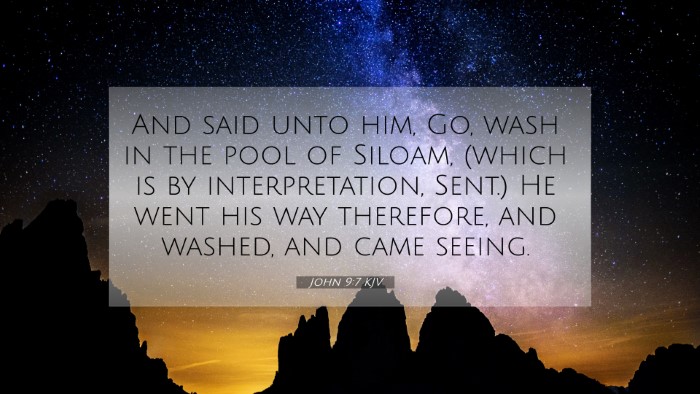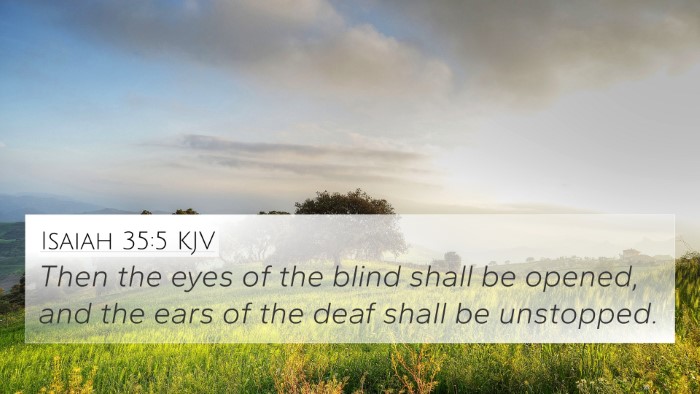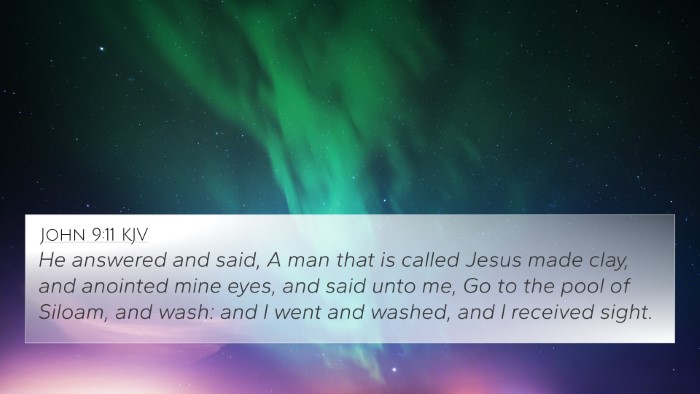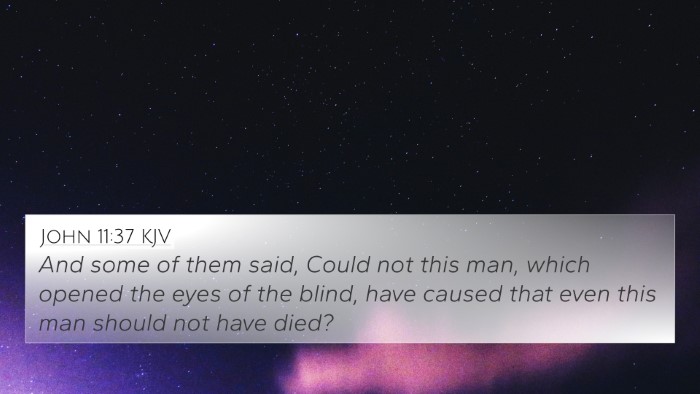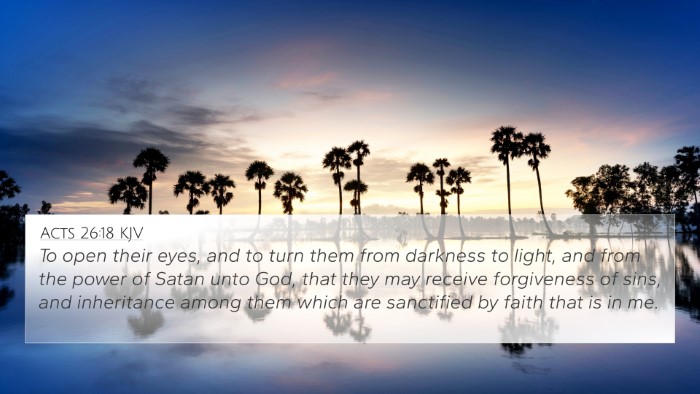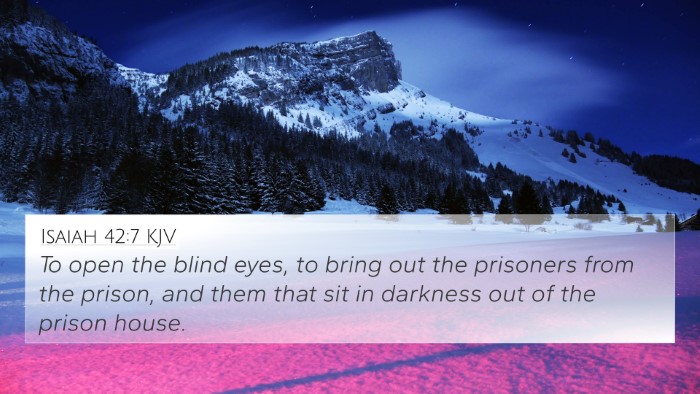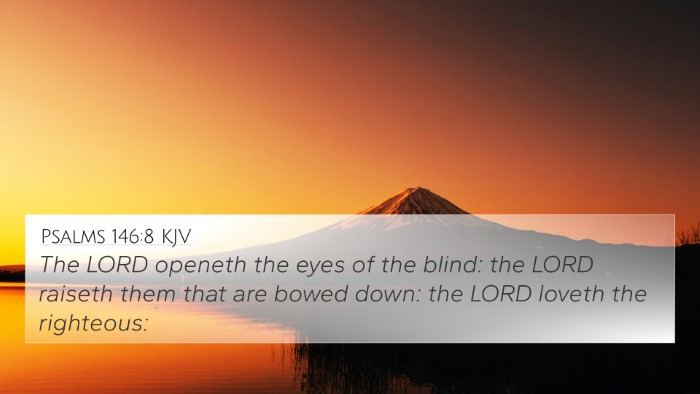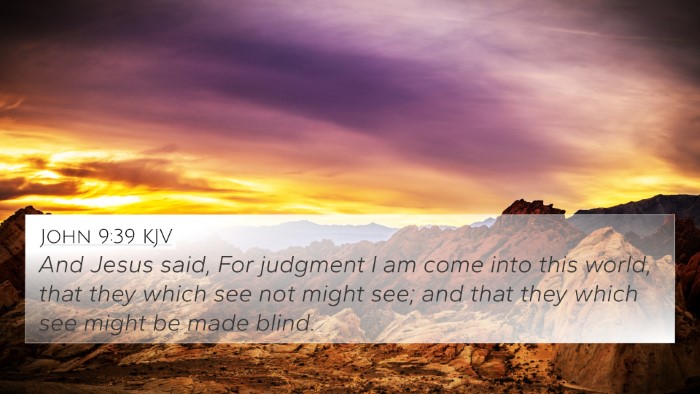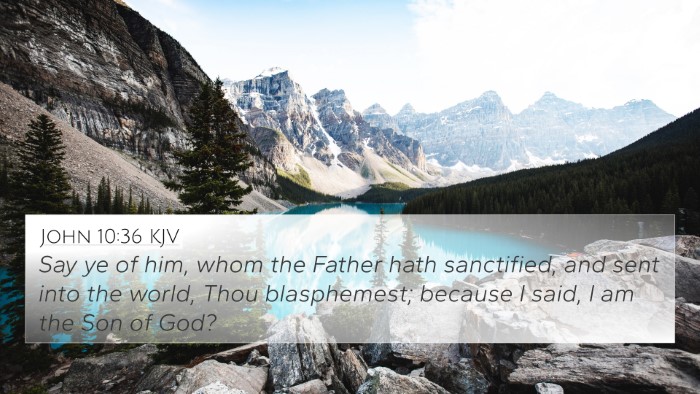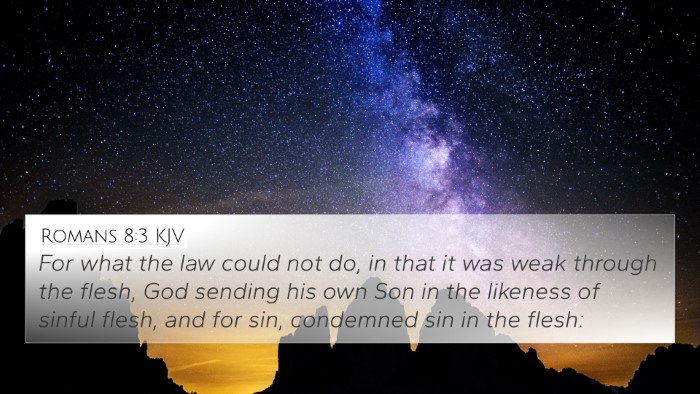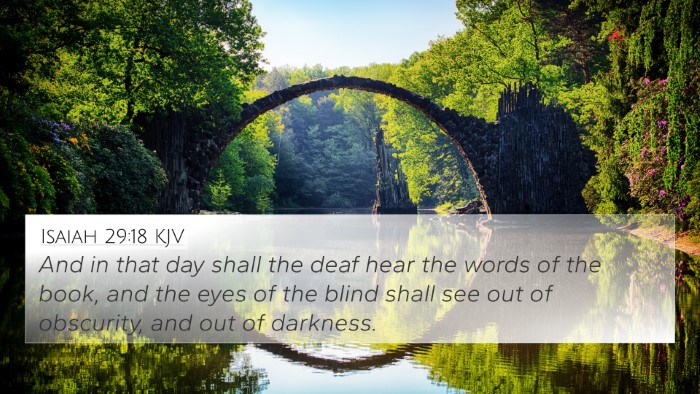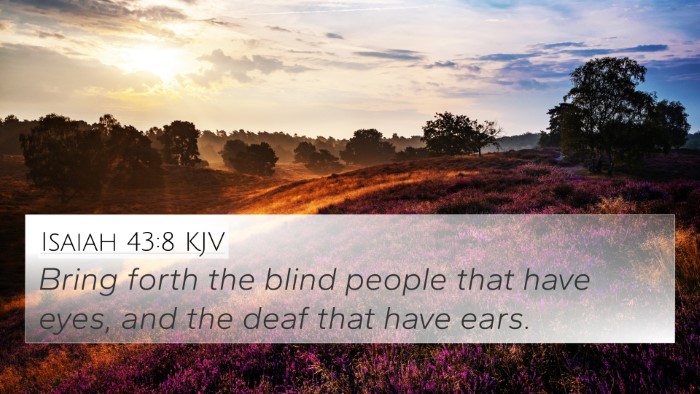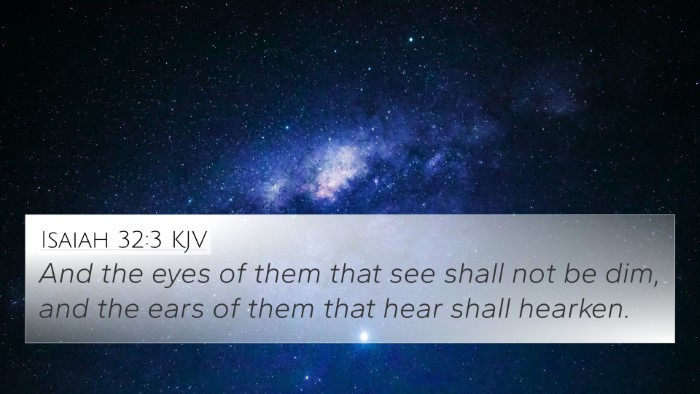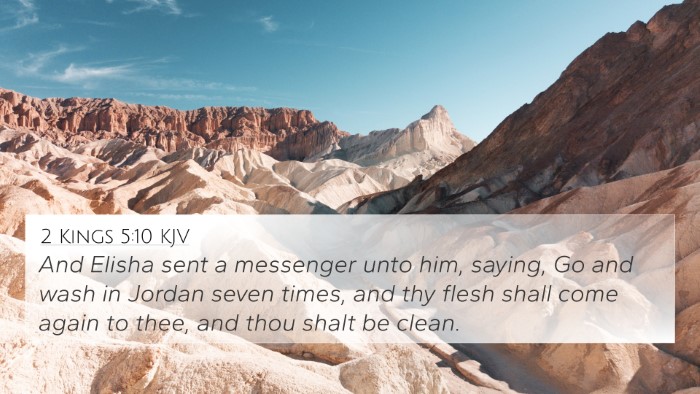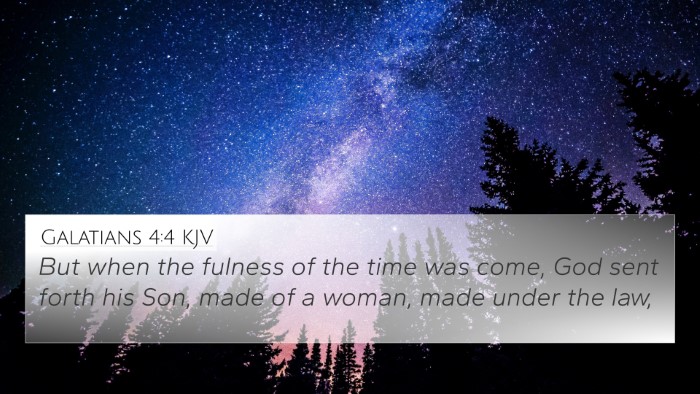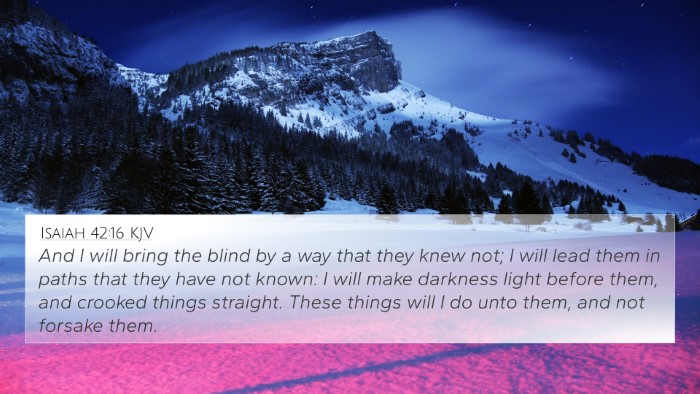Understanding John 9:7
Verse: "And said unto him, Go, wash in the pool of Siloam, which is by interpretation, Sent. He went his way therefore, and washed, and came seeing." (John 9:7)
Summary of the Verse Meaning
In this passage, Jesus instructs a man born blind to wash in the Pool of Siloam after spitting on the ground and making clay with the saliva. This act of washing is symbolic and pivotal, leading to the man’s healing. It serves as an illustration of obedience to Christ’s command, resulting in both physical sight and spiritual insight.
Commentary Insights
Matthew Henry's Commentary
Henry emphasizes the importance of obedience in faith. The blind man's action of going to wash in the pool signifies a response to Jesus' command, which is crucial for receiving healing. He also notes the significance of the Pool of Siloam, which means "Sent," highlighting a connection between the act of washing and understanding one’s purpose in Christ as sent into the world.
Albert Barnes' Commentary
Barnes explains that the act of washing is essential for the blind man's healing. He connects it to the broader theme of faith and obedience in the miracles of Jesus. He also points out that this miracle serves to display Jesus’ authority and divine nature, as it allows a testimony of the man’s transformation from darkness to light.
Adam Clarke's Commentary
Clarke delves into the meaning of the Pool of Siloam and the implications of being "sent." He observes that the water in the pool symbolizes purification and the necessity of washing away spiritual blindness. Clarke draws attention to the man’s immediate obedience and his subsequent recovery of sight, illustrating the relationship between faith and divine healing.
Cross-References for John 9:7
- Isaiah 35:5-6: “Then the eyes of the blind shall be opened, and the ears of the deaf unstopped.” - This prophetic verse aligns with the healing of the blind man.
- John 5:6: “When Jesus saw him lying there, and knew that he had been now a long time in that case, he saith unto him, Wilt thou be made whole?” - Similar themes of healing and faith.
- Matthew 11:5: “The blind receive their sight, the lame walk, the lepers are cleansed, and the deaf hear...” - A contrast to Jesus’s healing works reflecting God’s kingdom.
- Mark 8:22-25: The healing of a blind man at Bethsaida shows varying methods Jesus used to restore sight, indicating His authority.
- John 1:9: “That was the true Light, which lighteth every man that cometh into the world.” - This connects to the theme of spiritual enlightenment.
- Revelation 3:17: “Because thou sayest, I am rich, and increased with goods, and have need of nothing; and knowest not that thou art wretched, and miserable, and poor, and blind, and naked." - Discusses spiritual blindness and needs that Jesus can fulfill.
- Luke 7:22: Jesus reminded John’s disciples of the miracles being performed, reinforcing His identity and mission.
Thematic Connections
This verse, like many in the Gospels, emphasizes the themes of obedience, faith, and the transformative power of Christ’s healing. Through the act of washing in the Pool of Siloam, we see a metaphor for baptism and the cleansing power of faith in Jesus Christ. This mirrors various themes throughout Scripture regarding spiritual awakening and physical healing.
Conclusion
John 9:7 not only narrates a miraculous event but also serves as a profound lesson on faith and obedience to Christ's commands. As we cross-reference this passage with others in the Bible, we unveil deeper layers of meaning that connect to the overarching message of salvation, healing, and spiritual awakening found throughout Scripture.
Additional Resources for Study
For those interested in further exploring the connections between Bible verses, the following resources may be beneficial:
- Bible concordance for finding similar themes
- Bible cross-reference guide for deeper understanding
- Cross-reference Bible study methods to enhance spiritual growth
- Comprehensive Bible cross-reference materials to delve into specific themes
